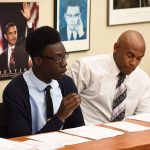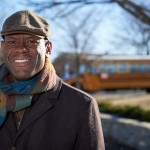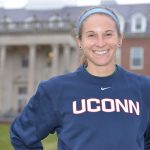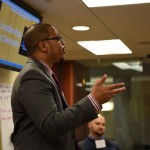In honor of Black History Month, UConn students gathered this past week at the University’s African-American Cultural Center for a panel discussion featuring six panelists from two student groups, Collective Uplift and Brothers Reaching Our Society (B.R.O.S.). Panelists discussed issues facing today’s African-Americans, including how Black males are and can continue to “take control over their own image.”
These words, spoken by Joseph Cooper, assistant professor in the Neag School of Education and the founder of Collective Uplift, served as the driving force behind a discussion that touched on self-image, stereotypes, resiliency, and more.
When charter schools first appeared in the U.S. in the early 1990s, they were seen as an exciting alternate choice for families looking to move their children out of low-performing urban schools.
Still widely popular, charter schools have become a major part of the nation’s educational infrastructure, expanding at a rate of about 12 percent a year. Nearly 3 million children, or about six percent of all children enrolled in public schools nationwide, currently attend charter schools.
But with states facing mounting pressure to ease regulations to allow more charter schools, and with the federal government and private industry offering millions of dollars in new charter school grants and incentives, UConn professor of educational leadership and law Preston Green III is urging policymakers to be careful.
Greenwich Time (Tamika La Salle quoted)
American Psychological Association
Whether it’s the MLB, NFL, or NHL, the world of sports has been cast as a hypermasculine, hypercompetitive environment. While this atmosphere may build toughness and encourage physical fitness, its acceptance toward athletes who identify with the lesbian, gay, bisexual, and transgender community is still in need of practice.
With faculty director Erik Hines at the helm, UConn’s 18th Learning Community is slated to launch this fall to help prepare African-American males for success during their undergraduate and post-baccalaureate careers through faculty and peer mentorship, undergraduate research, career development, Study Abroad, and graduate and/or professional school preparatory opportunities.




